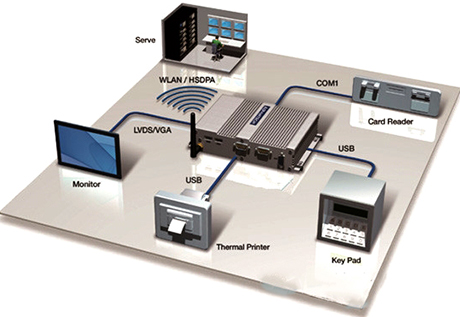Industrial automation technology is a use of control theory, instrumentation, computer and other information technology, the industrial production process to achieve detection, control, optimization, scheduling, management and decision-making, to increase production, improve quality, reduce consumption and ensure safety purposes Comprehensive high-tech, including industrial automation software, hardware and systems three parts. Industrial automation technology as one of the most important technologies in the modern manufacturing field of the 20th century, mainly to solve the problem of production efficiency and consistency. Whether high-speed mass manufacturing enterprises or the pursuit of flexible, flexible and customized business, must rely on the application of automation technology.
Automation system itself does not directly create benefits, but it is the production process plays a significant role in upgrading:
(1) to improve the safety of the production process;
(2) to improve production efficiency;
(3) improve product quality;
(4) to reduce the production process of raw materials, energy consumption.

According to the international authority of the advisory body statistics, the automation system investment and business efficiency to enhance the output ratio of about 1: 4 to 1: 6 between. Especially in the capital-intensive enterprises, the automation system accounted for less than 10% of the total investment in equipment, played a "accomplish a great task with little effort by clever maneuvers" role. The traditional industrial automation system is the mechanical and electrical integration system is mainly the equipment and the production process control, namely the mechanical body, the dynamic part, the test sensing part, the actuator, the driving part, the control and the signal processing unit, the interface hardware element, In the software program and electronic circuit logic under the guidance of the purpose of information flow, mutual coordination, organic integration and integration, the formation of material and energy orderly regular movement, thus forming industrial automation systems or products.
In the field of industrial automation, the traditional control system has undergone the development of the base-type pneumatic instrument control system, the electric unit modular simulation instrument control system, the centralized digital control system and the distributed control system DCS.
With the development of technology such as control technology, computer, communication, network and so on, the field of information exchange is rapidly covering all aspects of the field equipment from the factory to the control and management. Industrial control system generally refers to the industrial production process and its mechanical and electrical equipment, process equipment for measurement and control of automation technology tools (including automatic measuring instruments, control devices) collectively. Today, the simplest understanding of automation is also translated into: the use of a broad machine (including computers) to partially replace or completely replace or exceed human strength.